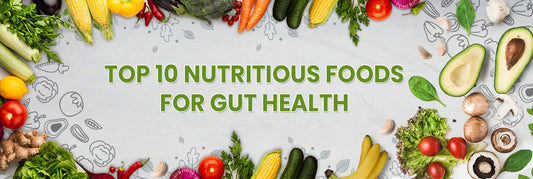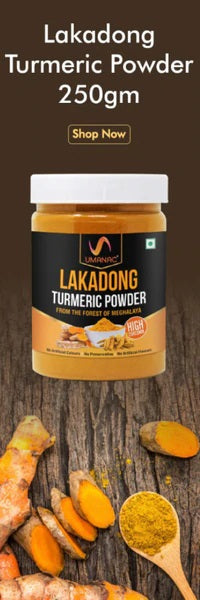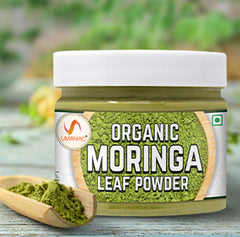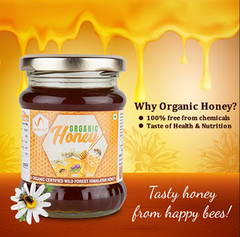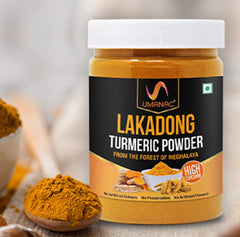One of the trending things that today’s people are concerned about is their gut health, and what are the tips and tricks to maintain proper gut health? Thus, it is common to hear the words "probiotics" and "prebiotics." But what exactly do these terms imply, and how do they differ? Understanding the difference between probiotics and prebiotics is essential for maintaining a healthy digestive tract and general well-being.
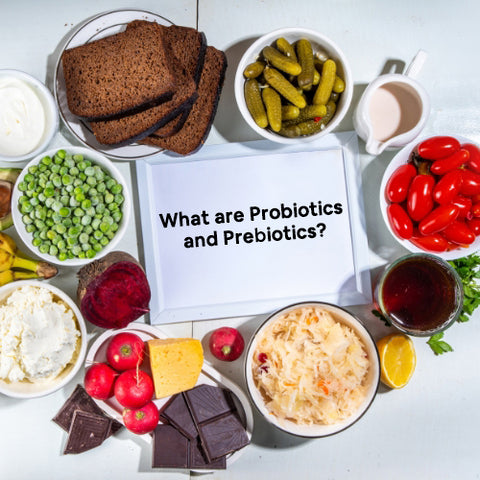
What are Probiotics and Prebiotics?
Probiotics are living bacteria that provide numerous health benefits when ingested in sufficient quantities. Prebiotics, on the other hand, are fibres that nourish the colon's healthy microorganisms.

Importance of Gut Health
The gut microbiome, which contains billions of microbes, is essential for digestion, immunological function, and overall health. It helps your body break down meals, absorb nutrients, and use them to power and sustain itself. So, if your gut is out of balance and your immune system isn't functioning properly, your serotonin and hormone levels will suffer as well, making it more difficult to stay healthy. The gut is also where your body eliminates metabolic waste and pollutants.
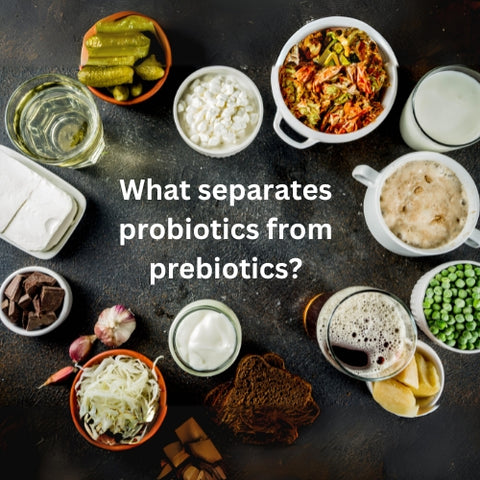
What separates probiotics from prebiotics?
Probiotics help to maintain and restore a healthy balance of microflora in the stomach by introducing helpful bacteria. Whereas, prebiotics feed these good bacteria and encourage their growth and activity in the gut.
Probiotics come in a variety of strains, the most prevalent being Lactobacillus and Bifidobacterium species. Each strain may have distinct health advantages, so it's important to select probiotic-rich meals or supplements that include a variety of strains. Probiotics have been linked to a variety of health advantages, including improved digestion, stronger immune function, and lower inflammation. They may also help with the symptoms of some digestive problems, like irritable bowel syndrome (IBS) and diarrhoea.
Probiotics are present in a variety of foods, including fermented goods like yoghurt, kefir, sauerkraut, and kimchi. Probiotics are also found in certain dairy products, such as cheese. Probiotic drinks are also available for folks who want an easy way to include these helpful microbes in their diet.
Prebiotics occur naturally in many fibre-rich foods, such as fruits, vegetables, whole grains, and lentils. Bananas, onions, garlic, asparagus, and oats are good sources of prebiotics. Prebiotics include inulin, oligosaccharides, and resistant starch. These substances are not digestible in the small intestine and instead pass into the colon, where they sustain good gut bacteria.
Prebiotics promote the growth of beneficial bacteria, which helps to maintain a healthy gut microbiota. They may also foster intestinal health, increase nutrition absorption, and support general immunological function.

|
Probiotics
|
Prebiotics
|
|
Yogurt
|
Fruits
|
|
Kefir
|
Vegetables
|
|
Kombucha Tea
|
Whole Grains
|
|
Tempeh
|
Nuts
|
|
Miso
|
Seeds
|
|
Pickels
|
Bananas
|
|
Chesse
|
Onions
|
|
Sauerkraut
|
Garlic
|
|
Buttermilk
|
Asparagus
|
Tips to Include Probiotics and Prebiotics in Your Food
Including Probiotics in Food
- Add fermented foods to your diet, such as yoghurt, kefir, and kimchi.
- Experiment with several probiotic-rich meals, including smoothies, salads, and soups.
- If you don't eat enough probiotic-rich meals regularly, consider taking a probiotic supplement.
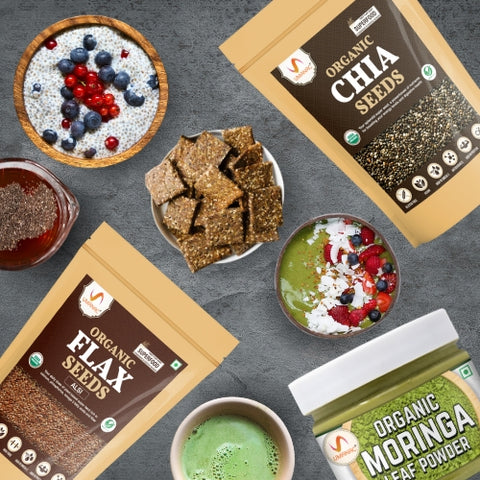
Increasing prebiotic intake
- Eat a variety of fibre-rich foods, such as fruits, vegetables, whole grains, legumes, nuts, and seeds.
- Cook and eat foods containing prebiotics in their natural form to retain fibre content and maximise health benefits. Umanac Chia Seeds and Flax Seeds can act as prebiotics, helping your stomach produce the good bacteria required to maintain a healthy digestive system.
- Increase your consumption of prebiotic-rich meals, such as Umanac Moringa Powder, gradually so that your digestive system can adjust.
Probiotics and prebiotics: do we need both?
While probiotics and prebiotics have separate benefits, taking both can have a synergistic effect on gut health. Adding a range of probiotic-rich foods and adequate prebiotic fibres to your diet will help support a robust gut microbiota and boost overall well-being.
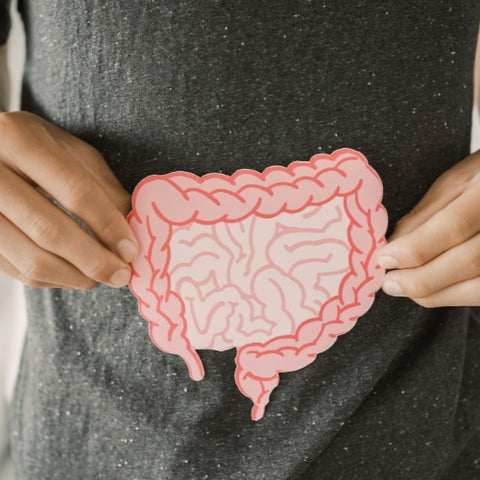
Conclusion
Increasing the amount of prebiotics and probiotics in your diet will help maintain a balanced gut microbiota, which can enhance your immune system, digestive system, and general well-being. A healthy food, however, entails more than just prebiotics and probiotics; you must consume adequate protein, carbohydrates, and healthy fats to maintain your energy levels and preserve your long-term health.




